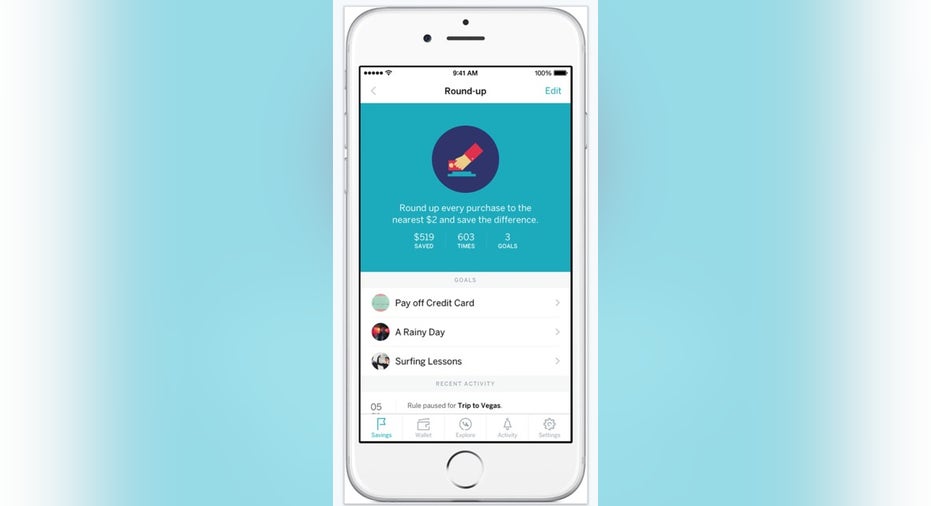Saving Money Just Got Easier: Apps to Help You Save Automatically

A recent survey found one of the top resolutions for 2016 is to save more money.
Thanks to technology, new apps and tools are available to help people save automatically with very little effort. They are simple, fun and easy to use. They are designed especially for millennials—those 92 million people between the ages of 18 and 36. Saving money has not been a priority for this generation but millennials are starting to turn that around.
Millennials, the biggest generation in U.S. history, are saving more. On average, millennials stashed away 7.5% of their salary, up from 5.8% in 2013 according to recent data from Fidelity Investments. While still below the recommended savings rate of 15%, it is a significant improvement.
Analysts say saving money has become much easier thanks to the smartphone. “We’re in a mobile era and you’re starting to see an explosion of apps that are trying to address very specific types of personal finance problems. This is appealing to a growing number of people,” says Mark Schwanhausser, director of Omnichannel Financial Services at Javelin Strategy & Research. He adds, “These apps are meant to take a little bit of the pain away and do some of the thinking for you.”
Other financial experts say don’t expect these apps and tools to make you rich. Instead, they should be viewed as a simple and fun way to stash away extra savings or save for specific goals such as a buying a car, going on vacation or paying off debt. Schwanhausser adds users need to be aware of online privacy and security risks as with all financial transactions made online. He also expects large financial institutions to increase their exposure in the space as more millennials demand simpler and more engaging financial tools, “How fast these companies can partner with big banks that’s where the future lies,” he says.
1. Digit
Digit monitors spending patterns and cash flow from a user’s checking account and based on that activity will automatically move small amounts of money into a Digit FDIC-insured savings account every few days. The company says it never transfers more than a user can afford and promises to pay any overdraft fees if necessary. There is no app and digit communicates via text. Users can choose to save more or less with a simple text message. The service is free but users don’t earn interest on any savings. Digit does have a rewards program: 5 cents for every $100 users keep in Digit for 3 months.
2. Qapital

Qapital is a savings app linked to a user’s checking account. Users can set savings goals, Qapital will monitor the progress and sends a fun message when a goal is reached. The app also features “Rules” that trigger automatic savings. It includes a round-up feature that rounds-up your change every time you make a purchase using a card linked to the account. Users can also set daily, weekly or monthly automatic savings transfers to meet certain goals. Qapital savings are sent to a FDIC-insured account and withdrawals can be made any time. There are no fees and users earn interest similar to a savings account. It’s not much but better than nothing.
3. Simple
Simple is an online bank that also features savings tools on its app. One tool is called “Safe-to-Spend.” It tells a user how much he/she can spend each day, factoring in cash flow and upcoming bills. Users can also set savings goals for specific items. Simple can set money aside for the savings goals automatically and subtract that from the “Safe-to-Spend” total. Simple does not charge fees. Accounts do offer interest but at low rates.
4. Acorns
Acorns is an app that helps users save and then invests that money in a diversified stock portfolio. After users link their spending accounts, Acorns will round-up each dollar spent on purchases to the nearest dollar. Those savings are then invested in a diversified investment account. Users can also set up recurring daily, weekly or monthly investment deposits. Add or withdraw funds at any time without penalties. There are no commissions for trades or rebalancing portfolios. Acorns does charge a fee: $1 a month for accounts under $5,000 or 0.25% a year for accounts over $5000. All students and anyone under 24 years old can invest for free.



















